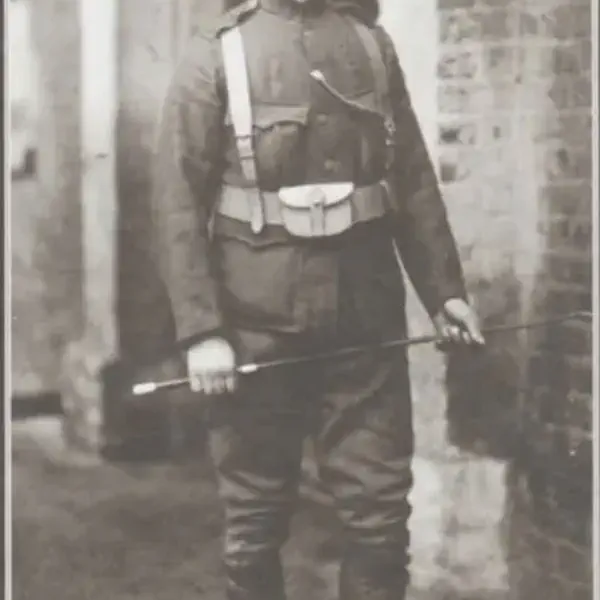
Irish Republican Erskine Childers Is Executed by the Free State Government
November 24, 1922
Robert Erskine Childers DSC (25 June 1870 – 24 November 1922), usually known as Erskine Childers (/ˈɜːrskɪn ˈtʃɪldərz/[1]), was an English-born Irish nationalist who established himself as a writer with accounts of the Second Boer War, the novel The Riddle of the Sands about German preparations for a sea-borne invasion of England, and proposals for achieving Irish independence.
As a firm believer in the British Empire, Childers served as a volunteer in the army expeditionary force in the Second Boer War in South Africa, but his experiences there began a gradual process of disillusionment with British imperialism. He was adopted as a candidate in British parliamentary elections, standing for the Liberal Party at a time when the party supported a treaty to establish Irish home rule, but he later became an advocate of Irish republicanism and the severance of all ties with Britain. On behalf of the Irish Volunteers, he smuggled guns into Ireland later used against British soldiers in the Easter Rebellion. He had a significant role in the negotiations between Ireland and Britain that culminated in the Anglo-Irish Treaty, but was elected as an anti-Treaty member of the first Irish parliament. He sought an active role in the Irish Civil War (over the acceptance of the terms of the treaty) that followed and was executed by the Irish Free State.
The Irish Civil War took place from 1922 to 1923, following the Anglo-Irish Treaty of 1921, which established the Irish Free State as a dominion within the British Commonwealth.
Erskine Childers, despite having initially supported the Treaty negotiations, later sided with the anti-Treaty forces during the Civil War, opposing the terms of the Treaty. He served as a director of publicity for the anti-Treaty IRA.
Childers was captured by Free State forces in November 1922 and was subsequently court-martialed.
On November 24, 1922, he was executed by firing squad at Beggars Bush Barracks in Dublin.
He obtained a promise from his then 16-year-old son, the future President of Ireland, Erskine Hamilton Childers, to seek out and shake the hand of every man who had signed his death sentence.
His final words, spoken to the firing squad, were:
“Take a step or two forward, lads, it will be easier that way.
His execution was a highly controversial and divisive event during a tumultuous period in Irish history. Childers’ life and his role in the Civil War remain topics of historical and political discussion in Ireland.